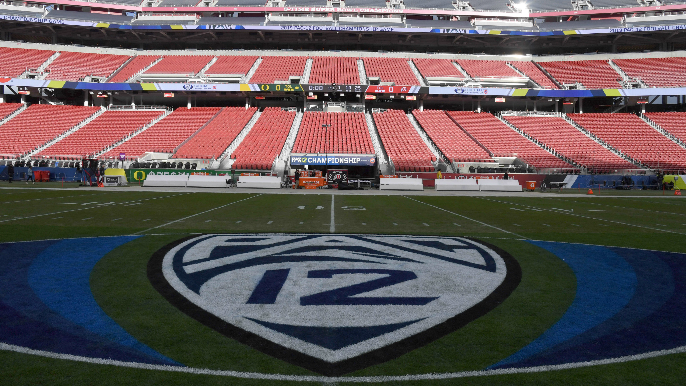I had the blessing and the curse to be raised by a man who valued ethics.
This makes many things in the modern world — and today I am speaking of the return of college football — such a gray area.
Because I love, love college football on Saturdays. It’s one of the best things about being an American.
But loving college football on Saturdays isn’t a totally clean ethical experience in 2020.
You know that word, right, modern world? E-t-h-i-c-s? My dictionary has it as “moral principles that govern a person’s behavior.” I know, it hasn’t been used in a while in any contexts near you or me. Doing something for ethical reasons is about as hip as a land line, or using punctuation in a text.
But the idea of asking college kids to play football during a pandemic brings with it some moral baggage. After all, these kids are not paid. The 49ers playing football? The Giants playing baseball? Those guys get paychecks. They feed their families. They make professional decisions as to whether or not they want to risk contracting COVID-19.
College kids don’t have that luxury.
So when the SEC and the ACC and the Big 12 announced they were kicking off, regardless, it felt like a TV money-grab (it was), and a political statement (maybe) and a risk (most definitely). Playing football would put kids in danger of contracting COVID-19, and then perhaps bringing it into their communities, and perhaps their families and, in general, keeping a virus alive that needs to die out.
It made the Pac-12 and Big Ten look adult by comparison. Yes, it was painful to steal an autumn of football, and by extension, their lifelong dreams, from young men. But the world is currently a painful place, filled with lots of painful sacrifices that we are trying to get past with responsible behavior.
There is, however, the flip side. That gray area I was talking about.
Testing improved to the point where college players could be identified as positive or negative that same day. This is a game-changer. Perhaps the idea that the virus could be corralled by this new testing made things significantly safer. Maybe it wasn’t as dangerous as previously thought.
Maybe bringing back football to the Pac-12 and Big Ten is OK, after all?
And this is where you start thinking about the ethics of it all: What about the other college students who are being robbed of their experiences? Why would football players be given higher priority than students who want to be in a classroom? Why would football players be given higher priority than other athletes who play fall sports?
And then the down and dirty part whispers back: But it’s college football. You love it. It’s a huge part of the country’s sports culture, and can give people solace and pleasure in a difficult time.
The states of California and Oregon, previously constrictive in their governing of athletic activity, changed course this week and seemed to open the door for Cal, Stanford, UCLA, USC, Oregon and Oregon State to play football. Perhaps this is cover enough for college football fans to rejoice. Don’t think twice, it’s all right, yeah?
I confess, I will watch the football. I will enjoy the football. I just hope we’re doing the right thing.


